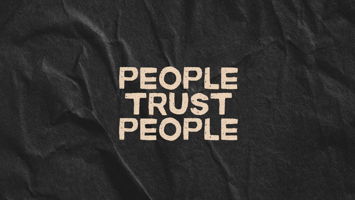Human rights are fundamental to the dignity and equality of all people. They invite us to reflect...
Why Human Rights in Business Matter [And What You Should Do About It]

In today's interconnected world, the Universal Declaration of Human Rights (UDHR) isn’t just a historical document—it's a guide for how we lead, work, and build sustainable businesses. Yet, many organizations view human rights solely through an external lens: supply chains, corporate social responsibility, or community engagement. What if the most profound impact starts within our teams?
Rethinking Human Rights: Beyond Compliance
Integrating human rights into workplace culture isn’t about compliance checklists or risk mitigation. It’s about embedding principles that uphold dignity, fairness, and equity into our daily fabric. When companies prioritize human rights internally, they foster environments where people feel respected, valued, and empowered to contribute fully.
Consider this: Decisions about leadership styles, feedback mechanisms, diversity initiatives, and mental health support are all human rights decisions in disguise. They're not isolated from business goals; they are business goals.
The Business Case for Human Rights
Why does this matter for leaders? Because companies that champion human rights within their culture see tangible benefits:
- Stronger Employee Engagement: Teams that feel heard and respected are more innovative, productive, and loyal.
- Resilient Leadership: Leaders grounded in human rights principles navigate crises with clarity and authenticity.
- Reputation & Trust: Stakeholders, from clients to investors, are drawn to organizations that demonstrate integrity beyond performative statements.
- Inclusive Workplaces: Cultures rooted in human rights naturally support diversity, equity, and inclusion, fostering environments where every voice matters.
Learning Through Reflection: A New Kind of Quiz
As a certified Human Rights Consultant, I aim to advocate for awareness of how these basic principles of humanity profoundly impact what we do in life and business. I have designed an interactive module to deepen understanding and inspire critical thinking about today’s UDHR’s relevance. It’s a reflective journey—five attempts, fifty unique questions—encouraging participants to explore human rights conceptually, applying them to modern workplace scenarios.
This isn’t about right or wrong answers. It’s about uncovering patterns, understanding intersections, and challenging assumptions. Human rights education isn’t a one-time training; it’s an ongoing dialogue. To deepen this exploration, you can explore how our perceptions of human rights today are influenced by the four schools of thought on human rights, which offer different lenses through which to view these principles in action.
A Call to Leaders: Make It Personal
As leaders, we shape cultures. Our approach to decision-making, conflict resolution, and team dynamics can either uphold or undermine fundamental rights. The question isn’t whether human rights apply to business but how intentionally we choose to integrate them.
Let’s move beyond policies and into practice. When human rights guide our internal leadership, they naturally shape the way we present ourselves externally. This alignment forges genuine connections with your audience and ultimately benefits the bottom line.
Ready to reflect on how human rights shape your leadership?




